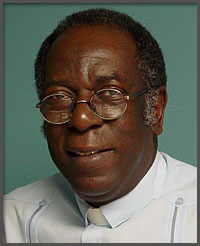 Wednesday, October 16, 2013 or Day 283
Ezekiel 27-28 Psalm 82 Revelation 5
There is a vague Bible Challenge familiarity to reading about writing on scrolls – because we just read about scrolls a few weeks ago in Ezekiel 2: 9-10: “I looked, and a hand was stretched out to me, and a written scroll was in it. He spread it before me; it had writing on the front and on the back, and written on it were words of lamentation and mourning and woe.” At first glance, it may seem we have early proof of environmental conservation efforts in the Bible – as both sides of the papyrus are used for the writing on the scrolls in both Ezekiel and Revelation. However, as William Barclay and other Scripture commentators have pointed out, papyrus was expensive, so when the author had a lot to say, they would utilize both sides for writing their message.
John’s audience, therefore, would be familiar with a vision about scrolls from the Hebrew Scriptures. In John’s dream, the scrolls provide the key to his entire vision, since the scroll was sealed with seven seals – probably for purposes of security, so that no unauthorized person could open it. These seven seals are revealed in Chapters 6 and 7, but what is important for us here is the fact that only one can open the seals, and that one who alone is worthy is the Lamb that was slaughtered: Jesus.
Have you ever had the experience of struggling with all your might to open a jar? You push and wiggle and twist and nothing seems to happen. Then, you hand it to a friend next to you and the jar opens immediately. You do lots of work, but it seems you need that second set of hands to make it happen.
Revelation shows us that there are some things only Jesus can open. I struggle in areas of my life with questions, needs, and disconnects. In some cases, only Jesus can open my mind and heart and life to the answers, the assistance, the understanding. There are some things only Jesus can open. What is my responsibility? To struggle with the jar – to “Do whatever he tells you” like his mother says at Cana. To follow the specific instructions like he gave to the lepers last Sunday, and as they heed his command, they are healed on the way. To listen to Him just as He breaks open the Scriptures to the confounded Emmaus disciples, and their hearts burn within them.
The chapters from Ezekiel reinforce this thought today. The mighty kings of Tyre and Sidon do not listen or follow God. Rather, they rely on their own power, and as Ezekiel states, “Because your heart is proud and you have said, ‘I am a god’,” (Ezekiel 28:2), they shall meet their ruin in their pride as a result.
Psalm 82 begins with “God has taken his place in the divine council; in the midst of the gods he holds judgement.” Ezekiel reminds us that God is in charge, not us. Revelation teaches us that only Jesus is worthy to sit on the throne with God. There is an impactful video that re-emphasizes all of this that I commend to you today for your reflection:
http://www.youtube.com/watch?v=KLPpyrBN0aY
May we continue to make the choice to let the only one who is worthy to sit in the chair.
Peace,
Marty Zlatic

“Around the throne, and on each side of the throne, are four living creatures, full of eyes in front and behind: the first living creature like a lion, the second living creature like an ox, the third living creature with a face like a human face, the fourth living creature like a flying eagle.” We saw these creatures two weeks ago, in the first chapter of Ezekiel. We saw the four faces and the eyes and the six wings. Then they were a part of the chariot of God that Ezekiel saw. Today they are part of the heavenly court. Always they represent the presence of God.
As we have been reminded, the prophecy of Ezekiel took place during a period called the Babylonian Exile. The people were removed from their homes. The temple – God’s house – had been destroyed. The question loomed, “Is God still with us?” (The unasked question, “Were we wrong?”)
In the time of John’s Revelation, the church was suffering a great persecution. Rather than immediate victory and the quick return of Jesus, they were again wondering, “Is God still with us?” (The unasked question gnawing.)
Each of these four is the highest of their order. The Lion is the King of the Jungle. The Ox is the highest of the grazing animals. The Human, created in the image of God, is the highest of creation. The Eagle is the greatest of the wingéd birds. Each type of creature serving the creator, each the highest of its kind.
In my church these are represented several times. They are in carvings behind the altar. They are on the Fair Linen that covers the altar. They are in the cover of the book from which we proclaim the Gospel. They are everywhere! Throughout history they have been assigned to individual gospels. Though the scheme changed from time to time, it is pretty settled upon today. The Lion is assigned to the Gospel according to Mark. Churches named St. Mark’s often have a Lion as their mascot. The Ox represents St. Luke. The Gospel of Matthew is represented by the wingéd man or the angel, John by the Eagle.
The words we are reading each day and rediscovering for ourselves have been represented around us daily. As these words become part of the lens with which we see the world, these symbols will be more obvious. They will peek out at us like these animals did from behind the statues of the Gospel writers at my seminary.
Today we are surrounded by events that lead us to question. Just this morning there was an earthquake in The Philippines which killed at least 20. The government is shut down. Our churches struggle. Today we wonder, “Is God still with us?” Look around and you will find that these age-old symbols of God’s presence are all around you. Lion, Ox, Human, and Eagle always there and always reminding us of the presence of God.

Ezekiel 23-24, Psalm 80, Revelation 3
A Reflection on Revelation 3
Wow…did I get the luck of the draw in being asked to reflect on Revelation 3. Rev. 3:20-21 is one of my very favorite passages of scriptures.
“Listen! I stand at the door and knock; if any hear my voice and open the door, I will come into their house and eat with them, and they will eat with me. To those who win the victory I will give the right to sit beside me on my throne, just as I have been victorious and now sit by my Father on his throne.” (Rev. 2:20-21)
When John wrote the Book of Revelation, Christians were going through a terrible time of persecution and needed an awakening of hope and faith. Through a series of visions or revelations, John carries for throughout the book ONE powerful theme which would bring hope to a suffering people – “Through Christ the Lord, God will finally and totally defeat all of his enemies, including Satan, and will reward his faithful people with the blessings of a new heaven and a new earth when this victory is complete.”. What they needed at the time and we need always is encouragement to continue believing and acting as people of hope in the midst of struggle. John’s vision of Jesus standing at the door and knocking is an open invitation to all people, throughout time, to know that Jesus is always with us. All we ever have to do is open the door. He is always with us.
Such a constant awareness of Jesus’ presence transforms our daily activities and empowers us to do the “honorable” thing rather than take an easier, less desirable action. Our changed behavior is not something that takes place in a day but over a life-time of living within the presence of Jesus. Because of HIM, we are different and act as such in the most interesting ways.
Carlos Arribas wonderfully depicts how Christ-like character informs our actions in honorable and surprising ways in his book, Honesty of the Long-Distance Runner. “On December 2, 2012, a Spanish long-distance runner named Ivan Fernandez Anaya was competing in a cross-country race in the Spanish countryside. Anaya was running in second-place, well behind the race leader, the Kenyan runner and Olympic medalist Abel Mutai. As they entered the finishing stretch, Mutai, the certain winner of the race, suddenly stopped running. Apparently, he mistakenly thought he had already crossed the finish line.
A Spanish newspaper reported what happened next: ‘Fernandez Anaya quickly caught up with him, but instead of exploiting Mutai’s mistake to speed past and claim an unlikely victory, he stayed behind and, using gestures, guided the Kenyan to the line and let him cross first.’ When asked what motivated this kind deed, Anaya said, ‘He was the rightful winner. He created a gap that I couldn’t have closed if he hadn’t made a mistake. As soon as I saw he was stopping, I knew I wasn’t going to pass him.’”
My only hope is that in the days of trial, my Christ-like character will also respond with such integrity.
Bryan A. Hobbs
[email protected]
 Bible Challenge
Day 279
Ezekiel 21-22 This first paragraph is a repeat of my commentary on Day 256, i.e. September 19th. In discussing Chapter 39 of the Book of the Prophet Jeremiah I wrote: “The Babylonian Exile actually took place in two stages. The first exile occurred about 596 B.C. At that time, when the Babylonians first subdued Judah, the king, the royal household, the nobles, the artisans and basically all of the really skilled people were deported to Babylon. Judah became a captive nation of the Babylonian Empire with a puppet king appointed by Nebuchadnezzar. Chapter 39 recounts the second stage of the Exile, the definitive fall of Jerusalem in about 586 B.C. It was at this time that the Temple was destroyed and the bulk of the population was deported into exile. Any last vestige of “national” life was ended when the puppet king was replaced by a governor (Gedaliah) and Judah was clearly merely a province within the Empire.”
As coincidence would have it, my assigned chapters for the Book of the Prophet Ezekiel focus on precisely this same time. Much of the first third of the Book of Ezekiel consists of predictions of doom for Jerusalem and the people of Judah who were left behind in the homeland after the first Exile. It seems that many of the Jews left in the land of Judah thought that they were somehow morally superior to their kin who were deported in the first Exile. The fact that they were not sent into exile but were allowed to remain in their own country and continue to worship at the Temple in Jerusalem seemed to corroborate this view. Ezekiel, a rather eccentric prophet, lets loose his invective against such hubris. He has a lot to say about the sins of the people remaining in Jerusalem.
In today’s assigned chapters Ezekiel proclaims that the impending doom is imminent. In 20:21-22 he pictures the king of Babylon practicing various forms of divination to determine whether he should attack Jerusalem or Ammon first. Either way, both kingdoms are doomed. In chapter 22 Ezekiel spells out a litany of sins for which the people deserve punishment, including contempt towards the elderly, extortion of sojourners (We have plenty of this in our country today as unscrupulous profiteers underpay undocumented immigrants and threaten to have them deported if they dare complain!), oppression of the poor, and profaning the Sabbath. There are too many parallels with our situation today than I care to contemplate!
It is probably not an overstatement to say that prophets such as Jeremiah and Ezekiel saved the ancient Jews from extinction and enabled them to survive the calamity of the Exile. The official theology of their day insisted that Jerusalem, the seat of the Temple, was God’s chosen place and would never fall. Jeremiah and Ezekiel were rare voices opposing the common view, and they were largely ridiculed. However, when events eventually proved them right, they had a newfound credibility. When, after the final destruction of Jerusalem, their message turned from doom to hope, the people could dare to believe their word since they had proven to be correct before. Their credibility was firmly established.
Revelation 2 Reading the many visions of Ezekiel is a good preparation for reading The Revelation to John. There is a lot of symbolism in Revelation, some of which we can figure out by referring to Old Testament imagery, some of which we can understand by a knowledge of the Roman Empire in the First Century A.D., and some of which is simply lost to history.
Chapter 2 consists of four brief “letters” to four of the seven Churches referred to in the introductory Chapter 1. The first letter is directed to the Church at Ephesus (in modern Turkey). It is a mixture of praise and condemnation. Significantly, this Church is chastised for its lack of love: they hold firm in their faith, they hate evil, yet they have “abandoned the love [they] had at the beginning.” This is something Christians of all ages should contemplate when we tend to get to be too judgmental. In general, the other letters praise Christians for their steadfastness, encourage them to not be fearful in the face of persecution, and call them to repent of those sins (idolatries of various sorts) of which at least some of them are guilty. In some ways, the warnings of God’s visitation if they don’t repent are not unlike Ezekiel’s prophecies of doom that he preached to the Jerusalemites of his day.
Frank J. Corbishley
The Episcopal Church Center at the University of Miami
 Day 278 Reflection
Ezekiel 19-20; Psalm 78:40-72; Revelation 1
By The Rev. Mark Andrew Jones, BSG
Today we start one of the most popular but least understood books of the Bible, The Book of Revelation – also known in some quarters as The Apocalypse. Both forms of the title mean “unveiling,” but “Apocalypse” better conveys the esoteric and mysterious quality of the book; for the work is more than a divine communication of hitherto unknown information.
Too often people read The Book of Revelation as if it were a guide to the world’s end. In the process, misinterpretations abound. For example, persistent speculation surrounds the Beast whose number is 666. At various times the likes of Hitler, Stalin, the Pope, and Saddam Hussein have been identified as the Beast. And the real Beast is …?
Also, some have used The Book of Revelation to predict the precise timing of the end of days. To-date all have been wrong. Unfortunately, some people have believed those predictions to their grave detriment.
More accurately, The Book of Revelation offers a revelatory vision of a supernatural world and/or the (often transformed) future of this world, heavily laden with symbolic meaning. For example, in Chapter 1 we actually receive the symbol of the seven golden lampstands along with its explanation (see 1:20), an aid we do not have for most of the book.
This book of the Bible offers us the revelation of “the Alpha and the Omega” (1:8), “the first and the last” (1:17), titles most likely developed through reflection on Exodus 3:14: “I Am Who I Am.” This is a book that is intended to reassure us: we’re in God’s hands; it will all work out in the end and we’ll be okay. Accordingly, at the outset, we are told, “Do not be afraid”; for this is the revelation of the one who was dead but who now lives forever, possessing power over Death itself (1:18). … Yes, we’ll be okay.
It seems to me that people misread The Book of Revelation for much the same reason the Bible as a whole is misunderstood. We read it as if it’s primarily about us when it is God’s revelation about God to us. Oh, we hear that ours is a God of love; but we spend more time and energy projecting onto God what we would do with us or various other people– and that’s what seems to most hold our attention. This is partially at work in how many read The Book of Revelation, and it’s largely at work in how people read the Bible as a whole.
Of course, we should be repulsed by our sins and the sins of humanity. Surely the Ancient Israelites defiled themselves when they made their “children pass through the fire” in honor of their idols (Ezekiel 20:31). And how often in our times have elders sent the young in harm’s way, to face enemy fire, and to fight and die on foreign soil out of an apparent devotion to the idol of National Interest, which can be at once expansive or limiting in its meaning, depending on whose real interests are to be served. Yes, it seems natural to react with not only revulsion but also to call for judgment and punishment in the interests of justice; but we must resist the urge to think that we are God’s chosen instruments in the execution of judgment and justice.
Yes, God loves us and wants all the best for us, including justice; but, to paraphrase Bishop Desmond Tutu, God’s love is so great that God loves our enemies too. While we humans think of God’s wrathful judgment on our enemies (be they within or from without) as leading to their destruction in a storm of travails, it’s more likely that God will defeat our enemies by making them our friends.
You see, God is lovingly faithful toward us. That’s why, even amidst the (human?) talk of judgment and wrath, we can hear God’s message: “You shall know that I am the Lord, when I deal with you for my name’s sake, not according to your evil ways, or corrupt deeds …, says the Lord God” (Ezekiel 20:44).
Ours is a faithful and loving God; so “do not be afraid.”
Yes, we’ll be okay.
 Day 277 – Ezekiel 17-18, Psalm 78:1-39, Jude
“It is these worldly people, devoid of the spirit, who are causing divisions. But you beloved, build yourself up on your most holy faith; pray in the Holy Spirit; keep yourselves in the love of God; look forward to the mercy of our Lord, Jesus Christ that leads to eternal life.” Jude 19-23
As I navigated though the admonitions, warnings of danger, descriptions of God’s punishments pending in all of these readings for today, I found Jude 19-23 comforting. I have an image of the world as filled with all kinds of spirits and I know it is my job to stay lined up with the holy spirit.
Build yourself up on your most holy faith. I picture building one brick of belief at a time, one prayer at a time, one relationship at a time, one hymn at a time…an image of strength and a strong foundation.
Pray in the Holy Spirit. A pattern of prayer that is truly not of us, but of the other, of God, of the Holy Spirit. I am praying without ceasing for a parish member who is in the hospital. I am praying in the Holy Spirit, sometimes in a language that only God can understand.
Keep yourselves in the love of God. That is our choice and our privilege. I keep myself in the love of God by my actions, by my words, in my songs. At some point during every week – a hymn or anthem from our weekend worship just pops into my head. One song I call on starts like this, “I will rejoice, I will be glad, I will praise God who holds my life in his hands.” It is an uplifting and lilting song, as it is usually sung. Some days I hang on to that song to keep myself in the love of God. I will rejoice (whether I like it or not) I will be glad (even though I am not feeling it at the moment). I will praise God, I will myself with sheer determination, to be lined up with the holy.
Look forward to the mercy of our Lord. Watch for God, where do you see God’s love and mercy? Expect mercy. Look around, even now for God’s hand.
So, how do you stay lined up with the holy?
PS – Yikes, Jude is that next to last book of the New Testament! I found the Harper Collins commentary – almost as long as this very early letter attributed to Jude, brother of Jesus – to be a helpful window into this powerful little letter.
Kathleen Gannon
 The Bible Challenge, Day 276: Ezekiel 15-16, Psalm 77 and 3
John
The Lord called the prophet Ezekiel to deliver a harsh message
of judgment to God’s Chosen People Israel. T he Lord remembers all the goodness God has showered on daughter Israel. With vivid imagery God
seeks to communicate the tenderness of the divine love for this daughter, thrown away by her birth parents but embraced, restored and protected by the Lord. God’s love for Israel runs deep. But Israel has failed to treasure this
divine love and goodwill. Instead, Israel has committed the abominable offense: Israel has toyed with pagan gods and the worship practices of her pagan neighbors, including the practice of child sacrifice. God says here, as
through other prophets (most notably Hosea), that Israel is acting like an
unfaithful wife, sleeping around hither and yon, unscrupulous about her
partnerships. God is furious and is going to use the Babylonian invasion to bring Israel to its knees – and back home to God.
Key to the grace in this passage is the act of remembering. Through remembering, God will reconnect with Israel. God will recall God’s tender loving care for the discarded infant Israel,
God’s appreciation for her beauty, and God’s protection during her puberty. The memories will soften God’s fury and restore the deep affection that secures the Covenant between God and God’s
people. On the other hand, through remembering, Israel will come to terms with the abominations of its past practices. By recognizing the truth of its flirtations with pagan practices and beliefs, Israel will feel shame, and that shame will lead Israel to a humility of heart and spirit that will enable
restoration of the Covenant and their appreciation of the treasure that it is. God’s forgiveness will be gloriously overwhelming.
Psalm 77 offers a snapshot of the human thought processes during
troubled seasons, such as those during Ezekiel’s time. When life seems to flourish, we can sail through with little thought about God. But when life seems
particularly chaotic and insecure, we cry out to God for help.
The psalmist wonders whether God has forgotten to act with that
characteristic godly compassion, or is too weak to handle today’s
misfortunes. (These are the moans of folks in the hospital emergency room.)
But here again, memories offer hope. God provided a way through the Red Sea
once long ago, and God’s caring and power are eternal.
The writing we call 3 John also focuses on faithfulness. Here, however, instead of evaluating
faithfulness by proper worship practices, our faithfulness to God is recognized
in our welcoming and supportive attitude and actions towards others, especially
those in the family of faith. We follow Jesus by living according to the truth – growing in love for our
neighbors.
What has God done for you? When have you been God’s blessing for
someone else?
Jennie Lou Reid
 Ezekiel 13-14
Psalm 76
II John
“From Heaven you announced a verdict the earth was fearful and silent when you rose to judge, O God, when you rose to save every oppressed person on earth.” (Psalm 76:8-9)
What a portrayal of God as a powerful judge. The words of Psalm 76 could seem blunt and even shocking, yet they are those of a psalmist who actually is stating that God is a lover of justice.
In the book of the Prophet Ezekiel, God rebukes in strong words the prophets who speak falsehood and dare pretend that they are “God’s” words. “They have misled my people by saying that all is well when all is not well.” (Ezekiel 13:10)
As we read the news, watch television, having to wonder about certain blasphemous behaviors from members of the clergy of our various denominations, we need to remember that we are not dealing with anything new.
Whether some prophets old or judges or governors pretending to be making decisions in God’s name or pastors of congregations, God has to bring judgments and heal the people called to be God’s servants. The following is a perfect example of God’s word to the church: “I say this because many deceivers, who do not acknowledge Jesus Christ as coming in the flesh, have gone out into the world. Any such person is the deceiver and the antichrist. 8 Watch out that you do not lose what we have worked for, but that you may be rewarded fully. (II John:7 and 8). Therefore fear not, God is in charge.
The Venerable J. Fritz Bazin, D. Min.
Archdeacon for Immigration and Social Justice Ministries
Diocese of Southeast Florida
 The fifth and final chapter of I John summarizes some of the basic themes that appear in both the Gospel of John and the letters of John. Some of these themes include:
* The importance of belief and, specifically, believing Jesus is the Christ, the Son of God. Both at the end of the Gospel of John and I John we are reminded these words are written that we might believe and in so doing share in the promise of eternal life.
* The tension God's children experience with "the world", which lies under the power of the evil one. (I John 5:19). For the author of both I John and the Gospel of John "the world" exists in tension with God and God's ways. Belief or faith in Jesus Christ unleashes in us the power that enables us to conquer the world and the power of the evil one.
* The direct relationship between living a life of love --toward God and the children of God--and a life of obedience to God's commandments. For the Gospel of John and I John to love is to obey and to obey is to love. This opens us to a much richer understanding of obedience and, especially, the spirit of love that animates a godly obedience, than is understood normally in our culture.
* The Spirit as the power and presence of God that leads us to the truth about God as revealed in Jesus Christ. To know the Spirit is to know Jesus as God's Son. To know Jesus is to know the truth. For John, truth is less an abstract proposition and more a dynamic and living relationship with the living God enabled by the Spirit.
* The need to be "born of God" or "born again" as Jesus informs Nicodemus in John 3. For the author of I John, those are "born of God do not sin" (I John 5: 18), which for some commentators presents a very different perspective on the persistent seduction of sin than is found in Paul's letters. Yet both Paul and the Gospel of John and author of I John believe in the transformative power of "grace", to use the word Paul prefers.
I John ends rather abruptly with its admonition to God's "little children" to keep away from idols. But perhaps this presents the author of I John's theme in nutshell: get worship right and we find life; get worship wrong and we lose life.
The Rev. Andrew Sherman
 I have just arrived in Israel for my first sabbatical and looking forward to my time spiritually and professionally. I hope to take the time to rest, be renewed in my faith and walk around and in the old city of Jerusalem as often as I can meditate and get some exercise. Professionally, I’m taking the time to continue to write my autobiography and possibly participate in an archeological dig.
As I read these scriptural passages, I’m in a state of awe because I’m in Jerusalem and from the top of St. George’s College, just north of the old city; I was able to see this ancient city. Jerusalem is no longer a distant place which I read about in the bible but rather a few blocks away. I wonder if we sometimes read the scriptures and put them at a distance because they seem so irrelevant, so foreign, and so far away.
It is interesting that two of our passages today talk about troubled times in Jerusalem. In Psalm 74, there was a foreign invasion. The temple and sanctuary had been destroyed by foreigners and the prophets had vanished. In Ezekiel 9, it talks about the detestable things (idolatry) which have been done in Jerusalem (v4) by the God’s chosen people. God’s own people had invaded their own sanctuary with foreign idols.
Their situations did not look good. It looked pretty grim. There have been invasions:
….foreign invasion
….national invasion
What about your life? Do you feel at times there are invasions? Do you sense that there are foreigners invading your life, people who are not normally part of your life but are causing chaos? Or what about nationals invading your life, people who are part of your spiritual life, from your church or bible study that are creating disorder? If we are to take these passages serious. God provides hope for us in the midst of spiritual invasions. In our Psalm, we are reminded that the Lord God provides salvation for those who are being invaded. And in Ezekiel, he offers forgiveness for those who are creating the chaos (9:4). One thing is clear during the invasions in our lives; God is our refuge and our strength.
+Todd Toliara
|










 RSS Feed
RSS Feed